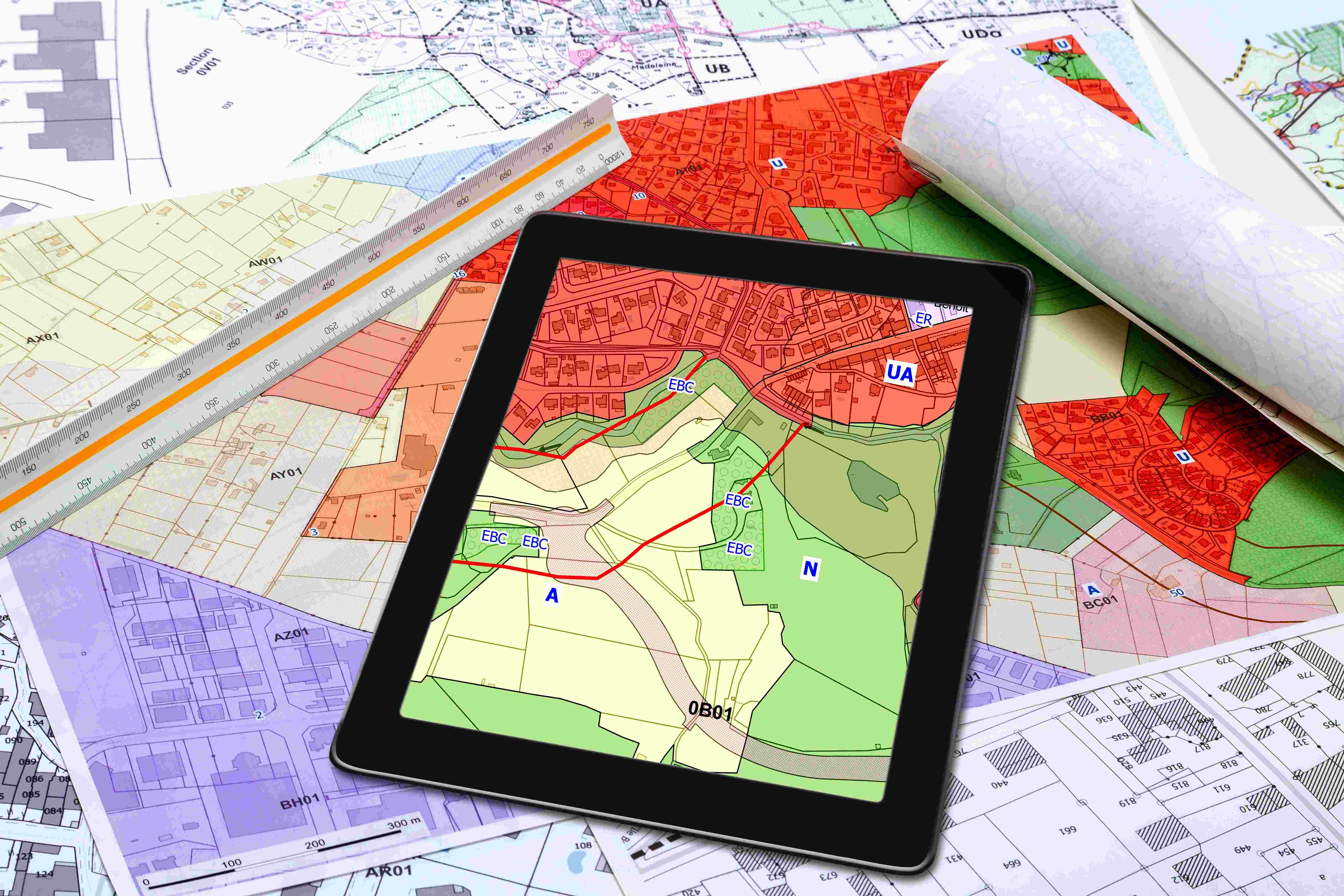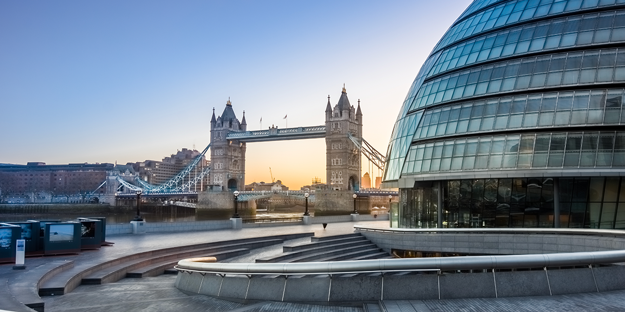In this series we speak to digital and technology leaders from a range of organisations, to find out how they're meeting their biggest challenges.
Technology trends inevitably ebb and flow. A couple of years ago, the buzzword of the moment was 'smart', with smart fridges, smart security systems and smart personal assistants joining the ranks of our more established smartphones and watches.
But as the hype grew, the relevance of smart technology began to be called into question. Is it enough to stick a sensor on something and call it smart? When we collect data, what will it be used for? Does being smart equate with meeting real user needs?
Smart cities are a case in point, with their science fiction promises of robots, autonomous vehicles and electricity—generating pavements starting to look a little farfetched when many of us don't yet have reliable internet connections to our homes...
Yet while the futuristic buzz around smart cities might have faded, important technological inroads are still being made behind the scenes. This starts with the data and digital infrastructure that is so key to making sure our urban environments meet the needs of their citizens.
It also starts with strong digital and technology leadership. So what are the priorities for Theo Blackwell, London's first Chief Digital Officer (CDO), when it comes to the digital transformation of the UK capital?
An American dream
The role of CDO for London was created in 2015 when public service reformers and individuals from the technology sector were brought together by Bloomberg Associates, an organisation which works with city authorities to improve residents' lives.
Hot on the heels of the appointment of a CDO in New York, the conversation turned to London. Did the UK's largest city need a CDO, and if so — what would that look like?
“The chief issue raised was that in London, due to the way UK local government is set up, you've got City Hall but also you've got 32 boroughs,” Blackwell says. “Most people interact with services through their borough, so whether you're talking about digital infrastructure, connectivity, digital services, open innovation, or transformation – it all has to be seen through the lens of London being a federated place.”
“In order to get to scale, to do great things that could help Londoners and boost the economy, you needed to establish a common framework with strategic leadership. That was the push to have a CDO, to improve collaboration between the tech sector and local public services.”
In data we trust
Even before the appointment of its CDO, London already had a history as a digital city. The concept of open data was popularised by the Obama administration in the USA in 2008, with cities across the world beginning to publish their data for anyone to use. London created the London Datastore as the repository for government (and some other) data about the city, to provide transparency and assist good policymaking.
That said, the real lift off in open data — according to Blackwell — came in 2014.
“When Transport for London started publishing a vast amount of data about the transport network on its open API, it spurred the generation of applications that Londoners use today,” he says. “It's completely normal now for people to go on their phone and open Citymapper, or Google maps, and plan how they are going to travel around London.”
If these kinds of applications made ordinary peoples' lives easier, then the next major data breakthrough focused more on strategic planning for the city.
“Come 2018 another really important change happened — the Datastore also created a functionality that allowed for the sharing of secure or non—open data,” Blackwell says. “That was really a reflection that to do deep data projects you can't just rely on open data, you need to have access to other kinds of data too. That's not necessarily peoples' personal data, but it could be data with some privacy implications attached to it.”
Sometimes open, sometimes not
Providing secure and trusted access to non—open data enables organisations to do much more than they could with open data alone. The sharing of non—open data on local pupil populations by the Department for Education, for example, has enabled the creation of heatmaps, informing the planning of future schools.
Blackwell also cites London's Infrastructure Mapping Application (IMA) as a prime example of the additional value non open data provides.
“The IMA is as close to a data trust as I've seen,” he says. “It is where utilities and construction companies share their data on a closed platform for use by them and City Hall officials. It ensures that when a big construction project happens people dig up the road once for water, gas and other connections, saving money and causing less disruption to Londoners.”
Blackwell now hopes that a new city data platform currently in the works will unlock even more value for data in London.
“The value in data isn't just in its open publication, it is also the ability to link private data sets on data projects,” he says. “What we see the new data store being is not some kind of smart city platform where you just pour data in and find interesting things, it's much more a registry of where data is in the city. So, if you want to do a project on something, the data store (which lists the metadata) will tell you where the data is. It's an enabler for data projects to happen rather than a big data lake.”
Importantly, this approach respects the data sovereignty of all the different boroughs and other public bodies in London, whilst also enabling more data projects to happen.
“That's our direction of travel,” Blackwell adds, “it is sharing data in a way that isn't centralised but is linked across the city.”
Chief Digital Officer – the rise of the role
The Chief Digital Officer role isn't unique to London, with major cities such as Manchester and Leeds also counting CDOs and CDIOs to their name. They might have varying remits, but they are all concerned with strategic digital transformation, design thinking, and promoting digital and technology as a core function that organisations – and cities – are created around.
Emphasizing this work at a local level also illustrates the importance of solutions that are specifically tailored to the needs of individual communities.
“I've got a very small team,” says Blackwell, “but we're able to have a helicopter view of what's happening in London and develop initiatives to support needs. That can't really be done at a Whitehall level at all. Of course, there is a CDO for local government — Paul Maltby, who does an excellent job — but cities have particular needs and a particular technology legacy that has to be understood.”
Those working in the public sector also need somewhere to turn for inspiration and support. In this sense, city CDOs have a role in bringing people together.
“People want a sense of direction, they want to know what's out there and what's possible,” Blackwell says. “We have tried to create that environment in London where the CDOs and CIOs of the boroughs can come together, to discuss, and share. This isn't something we did before. We saw things through the lens of joint services and procurement — but not collaboration, and working towards similar needs.”
There's no I in team
Collaboration, whether amongst a community of CDOs or between CDOs and their team, is crucial to realising the full potential of technology and data for our cities. Part of this is the recognition that no one single person can ever have all the answers.
“There are very few people who can be the CDO and the CTO and the chief public service reformer,” says Blackwell, “so I can't exist without a team. I know what my limitations are, I know there are people who are more technologically capable than I am, and there are other people who are more experienced in design thinking and delivery.”
“I think the most important thing for a digital leader is therefore recognising what the key functions are that you need in order to do a project really well and then assembling a team around you that enables you to do that.”
Going green
Amongst other priorities, there are now major objectives for London to be greener, to encourage walking, cycling and the use of public transport. As Blackwell notes, data and technology will be crucial to this work.
“It might involve things like demand—responsive buses, clean energy retrofits, e—scooters, or even technology we don't know of yet,” he says. “Innovation will be key, but by having a really strong grounding in digital transformation principles and by understanding user needs, we should be better at making these changes more accessible to a wider range of people.”
Data and user—driven approaches will also help cities to move away from the solutionism we have seen in the past – where initiatives have been imported from elsewhere, despite not necessarily being a good fit for local communities.
“In order to use these technologies we need trust,” Blackwell adds. “One of the big things we're working on at the moment is the Emerging Technology Charter. It takes some of the principles of the government Service Standard — emphasising design thinking, understanding user needs, and working in the open — and plays them into the smart cities space. If you do those things properly you've got really good ethical foundations for technology.”
As our urban places evolve after the pandemic and we face up to the major issues of climate change and pollution, it's clear that data and technology have a big role to play in the future success of our cities. It's also clear that the successful implementation of technological change hinges on meeting citizens' needs, in a way that also respects their privacy.
It's no small ask, but it's now required from all of our leaders in the public sector, whether they come from a technological background or not.

Helping Wales & West Utilities bring energy to people's homes
How we helped Wales & West Utilities to work out where to lay gas pipes quickly and efficiently, by building their own bespoke software.
Read moreOur recent insights

What's the plan? Transforming services with location data
How can location data - when collected, stored and shared in the right way - improve our local places?
Read more
Using data to influence change within our communities
During the Covid-19 crisis, we've seen councils and Voluntary and Community Sector (VCS) organisations collaborate with transparency and pace not commonly seen before to provide vital support services to those in need.
Read more
Understanding the need for low carbon energy systems in UK homes
We’re part of a consortium funded by UK Innovate to look at how local energy systems could decarbonise the supply of electricity in the UK’s homes.
Read more

